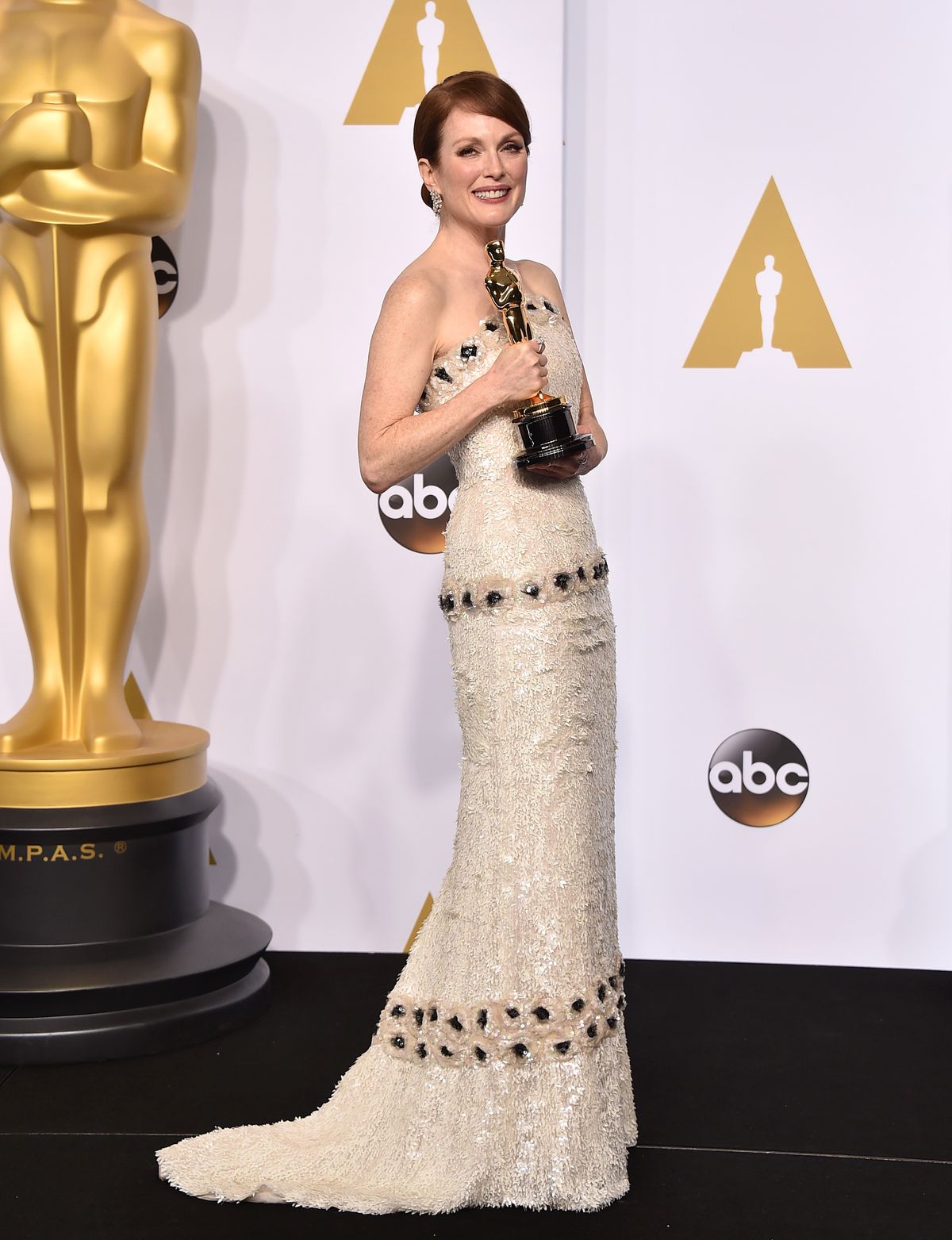‘Birdman’ takes flight at an Oscars punctuated by politics

LOS ANGELES – The long take of “Birdman” has stretched all the way to the Academy Awards, where the jazzy, surreal comedy about an actor fleeing his superhero past took Hollywood’s top honor in a ceremony punctuated by passionate pleas for equality.
On a stormy night in Hollywood, the 87th annual Academy Awards – which came in humbled by backlash to its all-white acting nominees – bristled with politics and heartfelt speeches about women’s rights, immigration, suicide prevention and race.
The Oscars awarded “Birdman” best picture, opting for a movie that epitomizes much of Hollywood – showy, ego-mad, desperate for artistic credibility – over one (“Boyhood”) that prized naturalism and patience. “Birdman (or The Unexpected Virtue of Ignorance)” also won best director for Mexican filmmaker Alejandro G. Inarritu, best original screenplay and best cinematography.
“Maybe next year the government will inflict immigration restrictions,” said Inarritu, recalling last year’s best director winner, Alfonso Cuaron. “Two Mexicans in a row. That’s suspicious, I guess.”
Inarritu, a larger-than-life figure of frizzy hair, regularly wrapped in a scarf, concluded the night’s many moving speeches that called for societal change. Inarritu said he prays his native country finds “a government we deserve” and that immigrants to the U.S. “can be treated with the same dignity and the respect of the ones who came before and (built) this incredible immigrant nation.”
The ceremony, hosted by Tony Award veteran Neil Patrick Harris, was heavy on song-and-dance to near-Grammy levels, perhaps headlined by Lady Gaga lavishly performing “The Hills are Alive” from “The Sound of Music” with Julie Andrews looking on.
The awards, which overwhelmingly went to less-seen independent films, were spread around. All eight of the best-picture nominees won awards, including Eddie Redmayne for best actor for his technically nuanced performance as Stephen Hawking in “The Theory of Everything.”
“Please know this: that I am fully aware that I am a lucky, lucky man,” Redmayne said. “This belongs to all of the people around the world battling ALS.”
All of Sunday’s acting winners were first-timers, including best actress winner Julianne Moore, who won for her performance as an academic with early onset Alzheimer’s disease in “Still Alice.”
“I read an article that said that winning an Oscar could lead to living five years longer,” Moore said. “If that’s true, I’d really like to thank the Academy because my husband is younger than me.”
Wes Anderson’s “The Grand Budapest Hotel” was honored for its handmade craft; “Whiplash” for its pulsating pacing and J.K. Simmons’ drill-sergeant jazz instructor; “Boyhood” for Patricia Arquette’s moving mother; “American Sniper” for its war film sound editing; “The Imitation Game” for adapted screenplay; and “Selma” for Common and John Legend’s best song.
Harris gave the Academy Awards a cheery tone that sought to celebrate Hollywood, while also slyly parodying it. “Tonight we honor Hollywood’s best and whitest – I mean brightest,” he began the night, alluding to the much-discussed lack of diversity in this year’s all-white acting nominees.
It was the first salvo in a night that often reverberated with heartfelt calls for change.
“To every woman who gave birth, to every taxpayer and citizen of this nation,” Arquette said. “We have fought for everybody else’s equal rights. It’s our time to have wage equality once for all. And equal rights for women in the United States of America.”
Cheers erupted throughout the Dolby Theatre, perhaps the loudest coming from a fellow supporting-actress nominee whom Arquette bested: Meryl Streep. “Made my night,” Streep told Arquette backstage.
Tears streamed down the face of David Oyelowo, who played the Rev. Martin Luther King Jr. in “Selma” and was famously left out of the best-actor nominees, during the rousing performance of the song “Glory” from the film. Immediately afterward, Common and Legend accepted the best song Oscar with a speech that drew a standing ovation.
“We wrote this song for a film that was based on events that took place 50 years ago,” Legend said. “We say that ‘Selma’ is now, because the struggle for justice is right now. We know that the Voting Rights Act that they fought for 50 years ago is being compromised right now in this country today.”
Wes Anderson’s “The Grand Budapest Hotel,” a European caper released in March, when many awards contenders were still shooting, tied for the most Oscars with “Birdman.” The Academy awarded Anderson’s latest confection with awards for production design, score, costume design, and makeup and hairstyling.
“Wes, you genius,” score winner Alexandre Desplat said. “This is good.”
Several of this year’s biggest box-office hit nominees – Clint Eastwood’s Iraq war drama “American Sniper” and Christopher Nolan’s sci-fi epic “Interstellar” – had to settle for single wins in technical categories. “Interstellar” won for visual effects, while “American Sniper” – far and away the most widely seen of the best-picture nominees – took the best sound editing award.